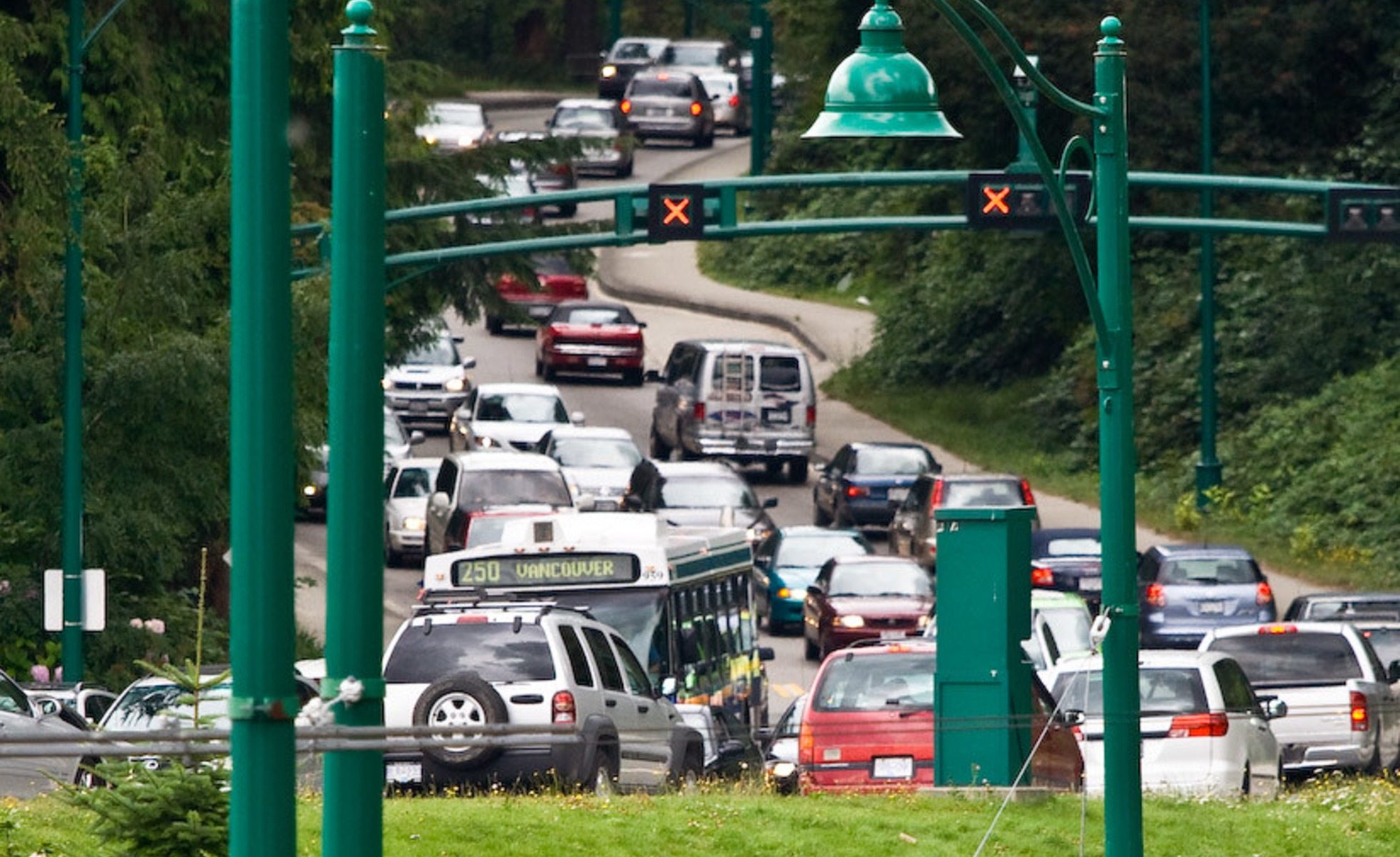Imagine a policy that helps clean the air, reduces car, bus and delivery truck travel times, and generates revenues for cities to pay for climate action. Yet, wherever it’s proposed, people say they don’t want it. Several months after it’s implemented, those skeptics often become converts. That describes the experience of mobility, or road pricing, around the world.
In November, Vancouver council approved the Climate Emergency Action Plan, which includes next steps for bringing in transport pricing. Vancouver has an opportunity to join cities like Stockholm and Singapore in the next generation of climate actions such as mobility pricing — but only if we’re willing to have an open conversation about how to make it fair for everyone.
Dislike of taxes and distrust of government are easy triggers for polarized conversations, often in the absence of evidence. Lost in the reactions are how cities within the region plan to come up with new revenue policies to replace the fuel tax, which will disappear as a source to fund transit as more electric vehicles come on-board.
By not charging vehicles for road use, governments fail to account for the negative impacts to society, including swelling climate emissions, traffic congestion, air and noise pollution and traffic accidents.
Most people support the principle behind road pricing — that polluters should pay. Yet, despite costly construction and maintenance costs for governments, drivers continue to treat roads as if they are free. By not charging vehicles for road use, governments fail to account for the negative impacts to society, including swelling climate emissions, traffic congestion, air and noise pollution and traffic accidents. As a result, people drive more than they would if those extremely high unacknowledged costs were fairly priced, and take a pass on sustainable alternatives like transit, active transportation and carpooling.
Road pricing reduces carbon pollution in addition to its role in reducing congestion, according to the David Suzuki Foundation’s report, “Pricing It Right for Climate.” In cordon areas, as is being proposed in Vancouver, emissions could drop overall in the range of two to 10 per cent. In addition to climate wins, savings can be realized from reducing congestion. A study from Greater Los Angeles found pricing can reduce congestion costs by 16 to 27 per cent.
Mobility pricing won’t work on its own. It needs to be part of a broader mix of transport and climate policies to tackle our region’s transport emission crisis. (Emissions from transport make up 45 per cent of Metro’s carbon footprint.) Strong provincial- and national-level regulations (vehicle emissions standards, low-carbon fuel standards and a zero-emissions vehicle sales mandate) must complement mobility pricing. Investment in active transportation, public transit and transit-oriented development also help people choose better options in addition to being part of the emissions reduction puzzle.
The policy must not penalize low-income households and communities disadvantaged by age or disability.
Any mobility pricing scheme must be fair. The high cost of housing in Metro Vancouver and limited options for affordable housing mean low- and middle-income households may feel they have to move further away from the central city for housing, requiring them to spend hundreds of hours a year commuting. Using mobility pricing revenues to create a credit for low-income households helps level the playing field. More and better public transit is also widely seen as essential for accessible mobility. The policy must not penalize low-income households and communities disadvantaged by age or disability.
Using revenues to support public transit, active travel and credits, exemptions and/or tax cuts can lead to fairer outcomes. Exemptions should be considered for residents within cordon areas, and commercial vehicles, carpool vehicles and pooled ride-hailing. These details could be part of the initial trial.
Road pricing also addresses emerging challenges and can be one of the most effective ways to guide the rollout of car sharing, ride hailing and vehicle-automation technologies, to assure they lead to substantial emissions reductions and avoid rebound effects from cheaper travel modes.
Transport pricing won’t come into effect in Vancouver until 2025. That’s just five years before we must drastically reduce emissions or face the most devastating impacts of climate breakdown, according to the Intergovernmental Panel on Climate Change. The city has four years to consult with communities and businesses and to invest in transit and active transportation so drivers have alternatives. A best-case scenario sees other Metro Vancouver municipalities following Vancouver’s lead.
The climate emergency requires bold actions. Discussion around policies like mobility pricing are taking on renewed urgency. With thoughtful design to address issues of fairness, such policies can help meet climate objectives and make cities healthier, better places to live, work and get around.
This op-ed was originally published in The Province
Our Work
Always grounded in sound evidence, the David Suzuki Foundation empowers people to take action in their communities on the environmental challenges we collectively face.





